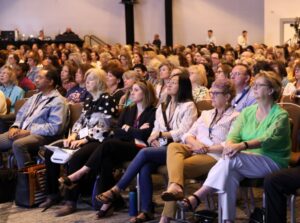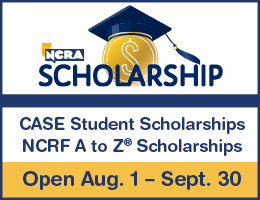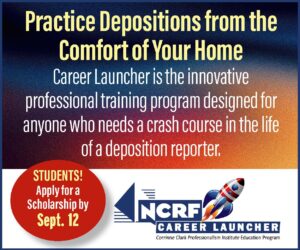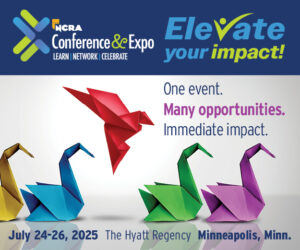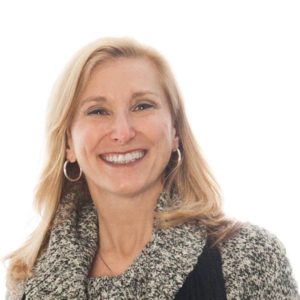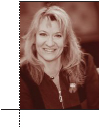 Nothing is more inspiring than reciting the Pledge of Allegiance in a room full of United States veterans. These men and women have served in every conflict our country has seen — many of them veterans of one, two, or even three wars — and now, as they are in their 70s, 80s, and even 90s, they continue to serve their country through the American Legion. No one is more passionate about service and this country than our veterans.
Nothing is more inspiring than reciting the Pledge of Allegiance in a room full of United States veterans. These men and women have served in every conflict our country has seen — many of them veterans of one, two, or even three wars — and now, as they are in their 70s, 80s, and even 90s, they continue to serve their country through the American Legion. No one is more passionate about service and this country than our veterans.
I received a call late on a Thursday, asking if I would be interested in reporting and preparing a transcript for an American Legion meeting all day on Saturday and half a day on Sunday. Since I didn’t have any commitments, I accepted the assignment.
I truly had no knowledge of what the American Legion was, does, nor what the assignment entailed, but I hit the road extra early to arrive with plenty of time to figure out what it was I could do for them. At the end of my day and a half with these phenomenal service people, the answer was not what I did for them, but what they did for me.
About an hour into the day, a gentleman was repeatedly mentioned, and his name was so familiar to me. I couldn’t place him for sure, but then my mind and fingers were extremely busy at the time. On a break, I finally remembered how I knew him: At my last convention as the president of the Utah Court Reporters Association, I had coordinated a two-site Veterans History Project Day. This man, Terry Schow, was my veteran liaison. He was appointed executive director of the Utah Department of Veterans Affairs by Gov. Jon M. Huntsman, Jr., on July 1, 2007. This man has connections! He helped me get the word out to the veterans of Utah, and he helped to coordinate the medical staff to facilitate our event.
As I progressed further into the day, I realized that this was a major meeting of the state chapter of the National American Legion. Each one of the veterans at this convention represented the districts and then the individual posts that comprised the Utah State Chapter of the American Legion. Each one of these leaders would be going back to their chapters and instituting their activities and programs throughout the state.
At a break, I approached Schow and reminded him of our affiliation. We discussed what a great success our Veterans History Project Day had been, and he said that he would love to be involved if we could do it again. So I shouldn’t have been surprised when, during a lull between speakers, I was called upon to present to their membership.
MY IMPROMPTU PRESENTATION ON THE VETERANS’ HISTORY PROJECT
Here is what I said:
I actually hadn’t planned on doing this, but what a wonderful opportunity for me to be here and to meet and associate with all of you veterans.
I am fascinated by the military: the people, the traditions, the loyalty, the dedication.
I did not grow up in a military family and really had no association with military personnel until I married into a military family. And you all are so intriguing to me. You are so unique. I have two boys who are absolutely obsessed with the Military Channel, and so I am gradually learning things that I should have learned perhaps many years ago.
I thought it was interesting when the Lieutenant Governor was speaking and sharing the exchange with his daughter, asking him and his wife why they love America so much. The thought occurred to me, I really do wonder if anyone who hasn’t served like you all have served and sacrificed can truly understand the devotion that you have for America. America is a part of your heart and soul. And I don’t know that we — those of us that haven’t served in the military — can truly understand that. But we can respect it, we can cherish it, and we can preserve it.
So the reason I’m here is because there is a program that I’m sure many of you are familiar with — actually, what brought it to my mind was Terry Schow. I recognized him because I worked with him on this very project a little over a year ago when I was the president of the Utah Court Reporters Association.
The program is called the Veterans History Project, and it is sponsored by the Library of Congress. And the National Court Reporters Association, of which I am a member, has partnered with the Library of Congress to record these statements.
And we actually did a Veterans’ History Day at both your Salt Lake facility and your — I call them care facilities rather than nursing homes, because I think they provide places of care for our wonderful veterans — at both your Salt Lake care facility and your Ogden care facility. We had teams of court reporters at both locations, and we invited the veterans to come in and speak to us. And we recorded those histories and sent them to the Library of Congress.
I have the rare privilege of being one of the few people in the small town of Kamas, Utah, who plays the piano, and so I perpetually am given the privilege to play the piano at funerals. This provides me the opportunity to learn about people, their families, and their lives.
When one of our revered veterans passes away, their families tell their stories, and I sit up there behind the piano and think to myself, Did somebody record these histories?
For those of us who haven’t been in the military, haven’t been in one of these conflicts, don’t have military family, if your histories, your stories, your experiences aren’t preserved, this incredible wealth of knowledge will forever be lost. You are the only opportunity, the only one with this wisdom whereby we can record these memories, and to record these events for posterity, for forever perhaps, and it pains me to see that opportunity pass.
I obviously wasn’t prepared to do this today, but tomorrow maybe I can bring some brochures that I have left over from our Veterans History Day. The court reporters in Utah would be thrilled to report your histories. We will come to your homes. We can take some of your pictures, perhaps your memorabilia. All of that stuff, they have a special place for in the Library of Congress where they collect these things.
And you don’t have to do it through us. Kits are available online for you to submit your own histories. If you have them already prepared — many of you have shared your pamphlets and books with me today. You can download that information and submit those histories.
If you haven’t already recorded your experiences and don’t have the facilities or tools to record your history and would like to be interviewed and have that recorded by a court reporter, we would be happy to assist you.
I’m going to try to not get too mushy now — though I appreciated those last people who came up and were a little emotional. I was afraid I would embarrass myself in front of you all with my sentimentality. It’s just something that I do.
In the movie Battleship, the best part of that whole movie is when their battleship has been sunk and they go to the “retired” battleship that is now serving as a museum. All of the young’uns don’t know how to operate it. And the veterans, in slow motion, walk up in formation and say, “What do you need, son?”
The respect, the passion, the knowledge that our veterans have is priceless. It can never be replaced. We are so grateful for all you have done and all you do to teach and train and carry on the traditions and inspire the legacy.
My two boys did a Veterans Memorial at our local cemetery for their Eagle Scout project, and they held their Eagle Court of Honor in the cemetery. The Color Guard was comprised of our local veterans, who conducted the flag ceremony. It was so inspiring. I couldn’t ask for a better example for my boys.
I thank you for your service, not only when you were in active duty, but the continued service you are doing through the American Legion and the examples and opportunities you provide for our youth. We need to record your histories and these memories that you hold in your hearts.
On another note, we also are very sensitive to the feelings you have about your service. We know that these were often distressing and difficult experiences, and you may not want to talk about them. Or you may not want to talk about these traumatic experiences in front of your family or loved ones. We understand and we respect that. This is not something you have to do, just an opportunity that we would love to provide, if you’d like to participate in this program. I will bring some cards. I will bring some brochures. Please get in contact with the Utah court reporters, and let’s record your histories.
THE MORE YOU GIVE
As the saying goes, the more you serve, the more you receive. As it turns out, present in the audience of this state convention were senators, representatives, and even the lieutenant governor of the state of Utah, all of whom are strong political supporters of our military and — as was later explained to me — have military family members with histories they would love to have preserved. They got information and made arrangements to follow up with me, and all gave me business cards and indicated if we “ever need anything, give them a call!”
The motto of the Utah American Legion is “Freedom Is Not Free.” We have such a rare privilege and special opportunity to serve these people through the Veterans History Project. These are the people who have paid the price for our freedom. It is so little to ask us to sacrifice an hour or two or even a day to serve these men and women who have sacrificed their time, their limbs, their health, their very lives for our freedoms. This is an opportunity to serve our country and our profession and for us to grow personally.
My day with the American Legion was priceless, both on a personal level and a professional level, as relationships were begun that will not only portray court reporters in a positive light, as hard workers, service-oriented consummate professionals, and dedicated Americans. In addition, Terry Schow, who was elected to the national executive committee of the American Legion, gave me his card and his contact information, as well as an invitation to call him if I ever needed anything.
Spending the weekend with these decorated war veterans inspires me to be better, to do more, to be more appreciative, to show more gratitude, and to find ways to serve. Organize a Veterans History Project day in your community, in your city, in your state. Go to your local rest home and visit with the staff. Find those veterans. Be conscientious of the sensitive nature of their experiences, but talk to their families and make a future appointment with them. Preserve this piece of American history, and serve those who have served.
The American Legion will receive their transcripts, and the invoice will be marked “paid in full … and then some!”
